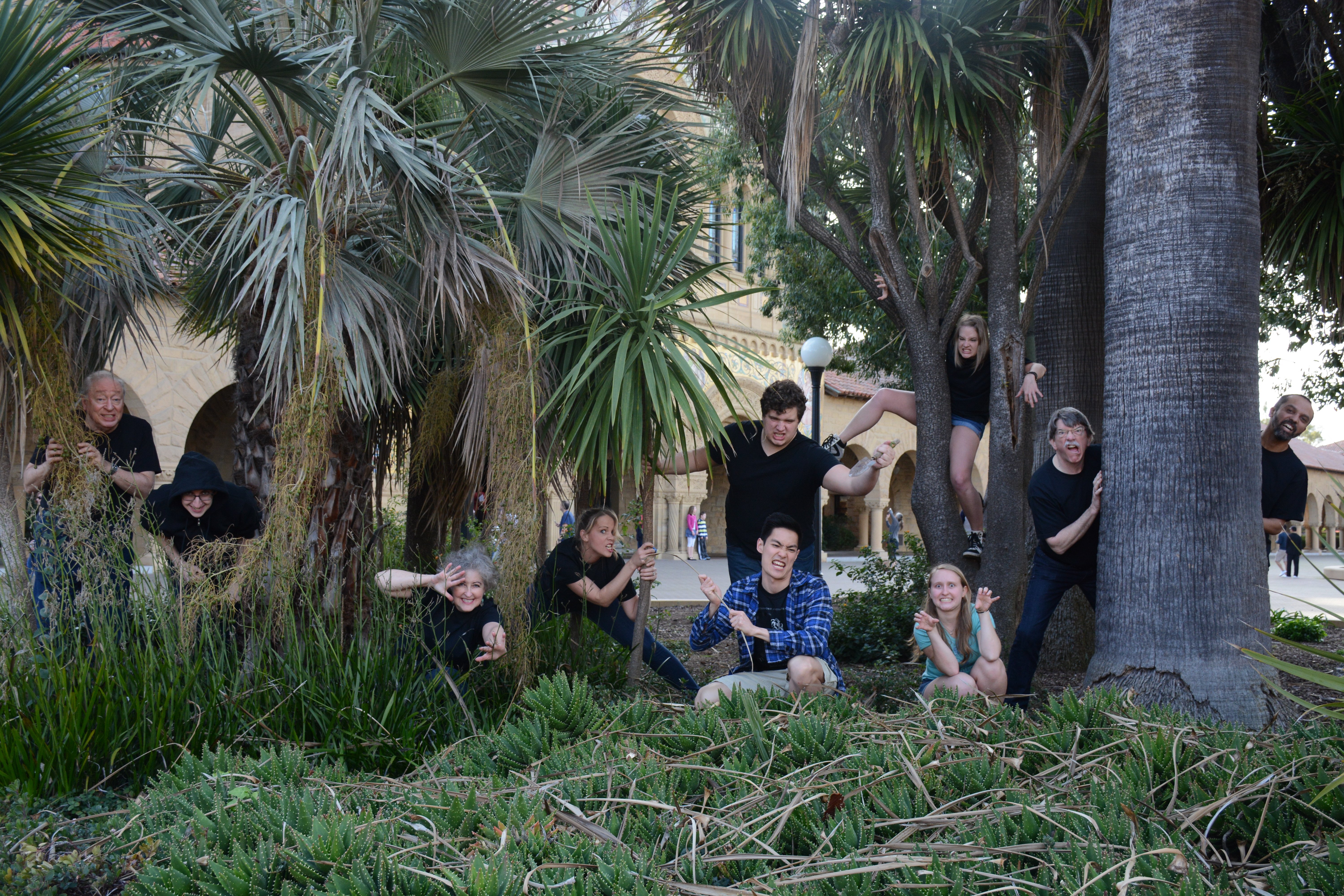If “Gaieties” can be considered the crown jewel of the frosh theater world, “Candide” must be seen as its evil twin sister – a gift from the gods to a slice of the student body unaccustomed to finding others so deeply cynical about academia, Silicon Valley and the peculiar particularities that define the Stanford Experience™. Based on Voltaire’s 18th-century French satirical novel, “Candide” is a quintessential reflection of the Enlightenment worldview. In the original story, Candide is a young lad from Westphalia whose desires are simple: to marry the love of his life (the Baron’s daughter, Lady Cunégonde) and to follow the teachings of his master, Dr. Pangloss, who instructs him that “all is for the best in this best of all possible worlds.” But as he is befallen by a series of grave misfortunes – the murder of Cunégonde’s family, his own forced enlistment in the Bulgar army, the subsequent crumbling of his homeland at the hands of the Portuguese Inquisition – his sunny outlook on the world wilts at every turn.
In the Savoyards’ adaptation of this jaundiced classic, their staff writers have outdone themselves. The story is set right here at Stanford University: the best of all possible schools, in the best of all possible countries, in the best of all possible worlds. Candide (the fetching Preston Lim ‘17), a sprightly incoming freshman, is overcome with excitement about his fabulous life. He spends his days immersed in the teachings of Professor Pangloss (skillfully rendered by Jacob Chamoun) – a pompous, charismatic lecturer who saturates his students in the work of Aristotle and the vague belief that there is some sort of rhyme and reason to all that is corrupt in the world. As a former East Flo native, I must admit that I began to feel as though I was suddenly reliving my time in SLE, complete with that chipper adolescent conviction that injustice will find a way of solving itself.
But this all changes after a massive earthquake sends The Farm crumbling to pieces and the president’s throat is sliced on the steps of Memorial Church. Amidst the ruins of what was once one of the most prestigious academic institutions in the world, a band of graduate students roams amok, purging the campus of all climate change survivors. Dressed from head to toe in aggressively fun rally gear, they sing the famous Bernstein lyric, “It’s a lovely day for drinking and for watching people die!” as images of FroSoCo flags and the LSJUMB flash across a projector screen above. Meanwhile, the wealthy Cunégonde (in an exuberant – and deliciously dislikeable – performance by Jessica Moffitt ‘16) has been forced into the life of a sex worker, being passed back and forth between an elderly Silicon Valley venture capitalist and the founder of everyone’s favorite start-up company, “Goober.” After Candide travels to the far-off Kingdom of Arrillaga (Arrillaga being portrayed in drag by Mia Farinelli ‘17), Candide must heroically sweep into the Stanford Faculty Club to purchase his lover back with a donation to the Alumni Foundation. Though I was somewhat surprised to see the show end on such an oddly reconciliatory note, with Candide and Cunégonde settling down on a “modest farm” (in this case, The Farm with a capital “F”), the amount of jabs this production manages to make at the world of Silicon Valley technocracy is a sight to behold.
Directed by Wendy Hillhouse, the show makes use of a simple set – which emerges only in the form of projection images and a miniature cardboard ship that is pulled across the stage. Behind the actors, rows of chairs seat an entire ensemble dressed in black, who take turns laughing, crying and messing around with the main characters throughout the musical. The effect is dynamic and refreshing, and does much to keep the satirical nature of Voltaire’s original story intact. Of course, not every moment is entirely on point: Some jokes fall flat, and a few songs feel a little on the long side. But nevertheless, the comedic pacing is keen throughout, with especially entertaining bits by Miles Petrie ‘19 and Samantha Williams ‘17, who gives a stunning performance as a sultry old woman missing her buttock.
Cleverly conceived and sharply delivered, the show digs at many deep questions about why certain aspects of academia are so carelessly embraced – and how absurd the Stanford Bubble truly is. Candide, now having witnessed the many grotesque realities which shape our world, asks, “What is kindness but a lie? What to live for but to die?” and begins to doubt everything he’s been taught. At a place where it can often feel as if people are neither wise nor pure nor good, such a plight is not foreign to the many students who must come to grapple with similar realizations – and ultimately discover that not every problem in life can be riddled away with the Socratic Method. To put it plainly, the Savoyards blew me away with their brazen decision to put the mighty Card on trial, and to address issues about life in Palo Alto that few theater groups on this campus have dared to touch – all with a grin on their faces and a deceptively cheery tune on their lips.
Contact Madelaine Bixler at mbixler ‘at’ stanford.edu.
